When the pandemic hit, it opened up more access to remote job opportunities, especially for young tech professionals in Nigeria. Currently, more African talents are being hired across the world for remote jobs.
However, thousands of people face bias based on age, gender, nationality, or race.
One of such persons is ON(name withheld), a Project Manager from Nigeria who applied for jobs through platforms like Appen, only to release that the system does not favour candidates from his geographical area.
To make sure, his experience was not an exception, I decided to dig deeper to find out how deeply rooted employment discrimination, these were the most common ways job candidates experience bias in the hiring process
National Origin Discrimination
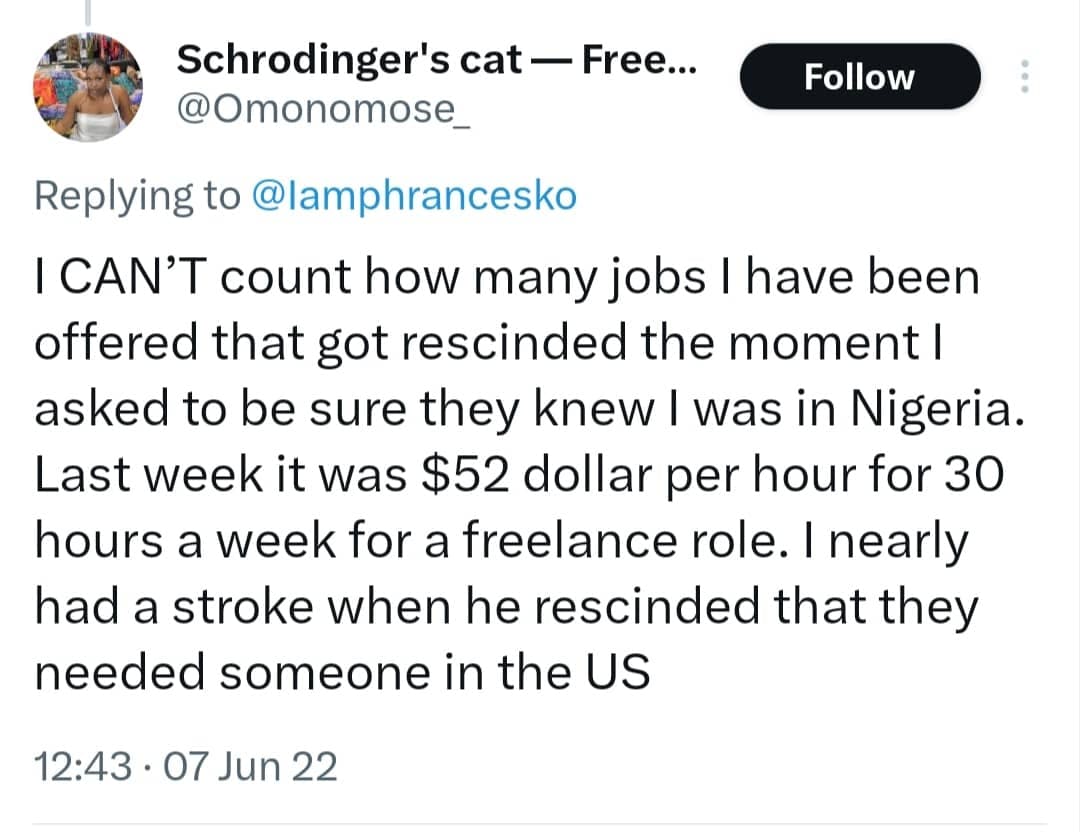
Although Nigeria has grown thousands of tech talents, having 4 of the 31 unicorns in Africa, yet the perception of Nigerian youths being fraudsters still lingers on, affecting how we are viewed even in the international job market.
There are opportunities and jobs that completely blacklist Nigerians from applying. It may appear as not finding your country of origin as one of the checkboxes ✅ to fill in
Candidate Visibility on Job Platform

Global job platforms allow Recruiters to find and connect with skilled talents directly, without having to go through the rigorous process of scanning through multiple job applications.
Many recruiters are now shifting from the traditional method of posting a job to actively searching for Talents on LinkedIn and other job platforms.
imagine what this would mean for candidates whose profile are hidden from HR managers & recruiters
Lower Pay Discrimination
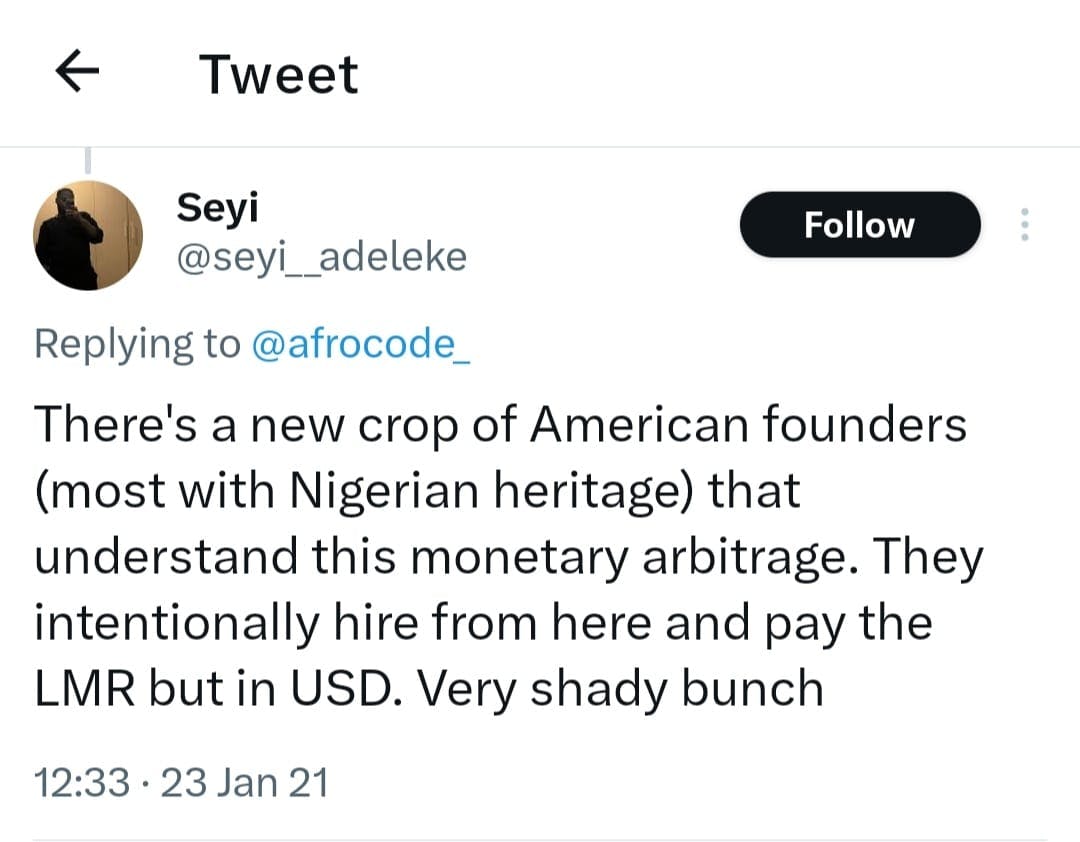
Developers, writers, product managers, and technical professionals from third-world countries also face bias when negotiating their salaries with prospective employers who intentionally pay them below industry standard
All of these inequalities hinge on one simple fact: companies and recruiters get a free hand on the personal information of job talents and use it to their advantage.
Promoting Job Fairness through web5
Web5, with its core focus on helping individuals control their identities, can mitigate some of these issues through its technologies
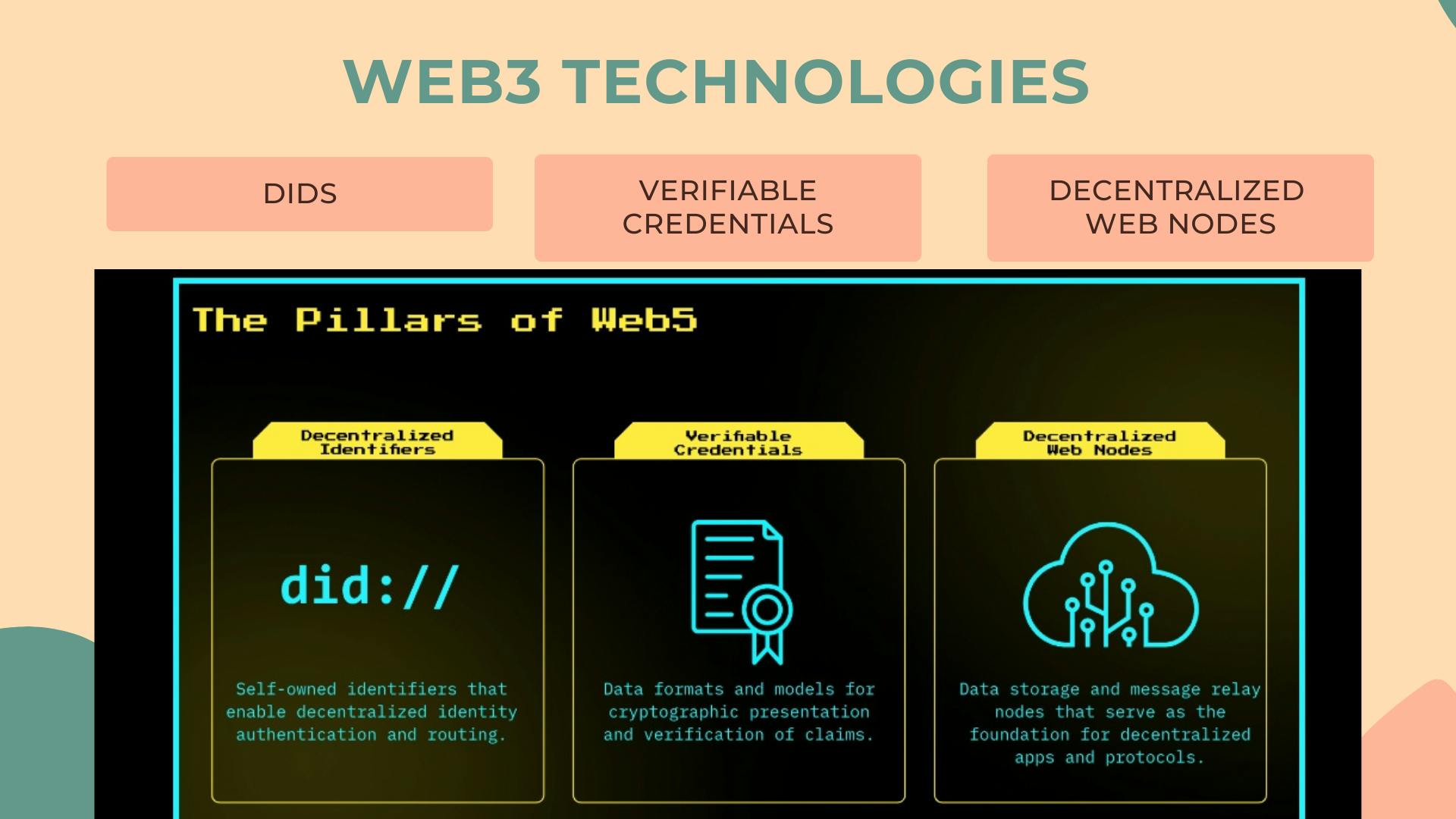
One of the key attributes of Web5 is that it gives people ownership of their digital identity by allowing them to manage their data.
This allows job seekers to control who seek their personal data and how much of that data they want to reveal in their job hiring process. Let's explore the technology that makes it possible for this to happen
Decentralised Identitfiers (DiDs):
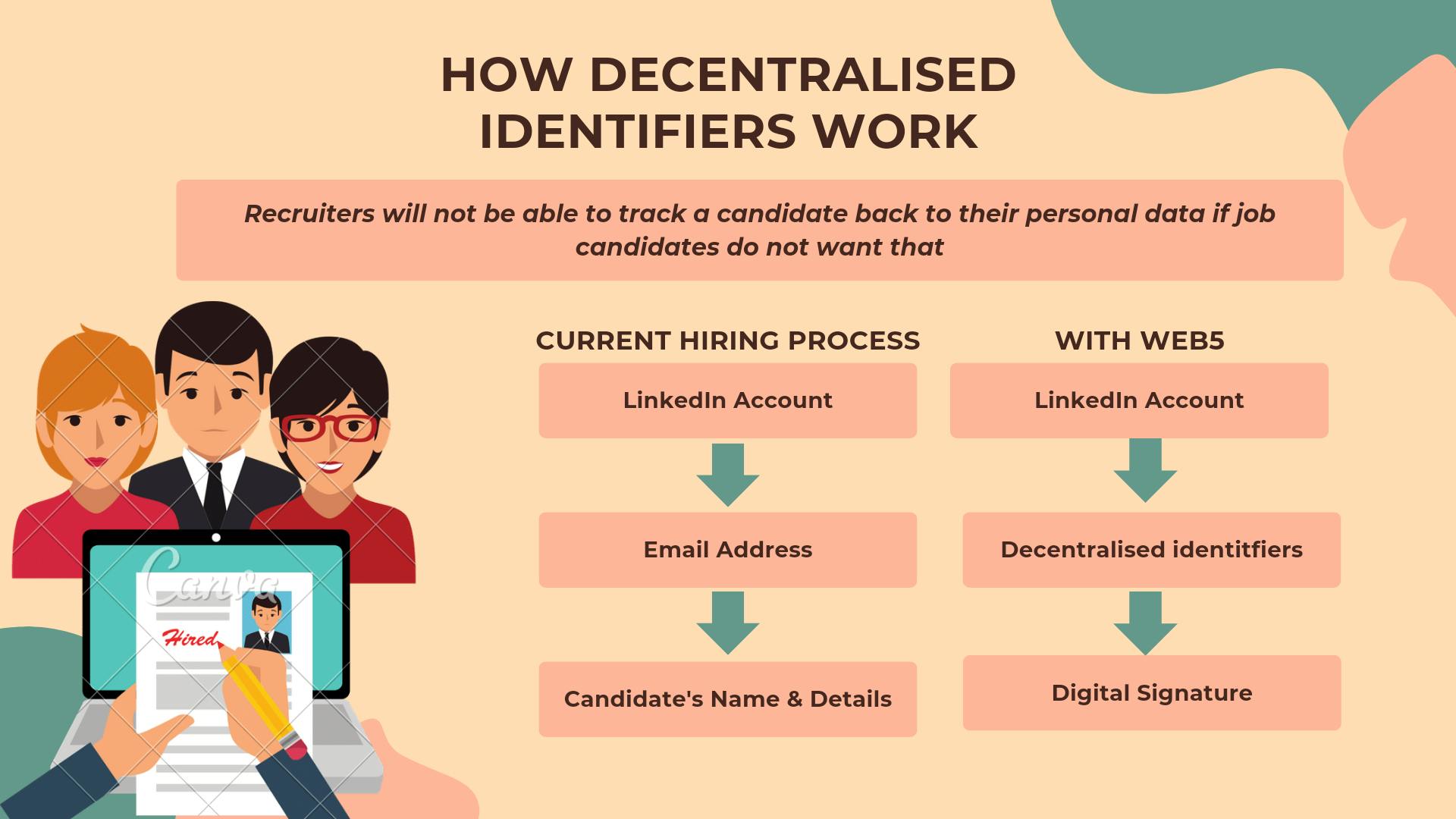
DIDs are a new type of identifier designed to enable verifiable, self-owned, and decentralized digital identities.
With these new digital identities job seekers can have a digital identity that is independent of job platforms like LinkedIn. Making it easier for candidates to choose what information to disclose and which they want shared.
Verifiable credentials
VC in Web5 makes it possible for two parties, i.e. recruiter & talent, to interact without trusting each other.
Recruiters want to get the personal information of tech talent to ensure that their professional and academic credentials are authentic.
"What if Tech Talents can verify Credentials without full disclosure of personal data"
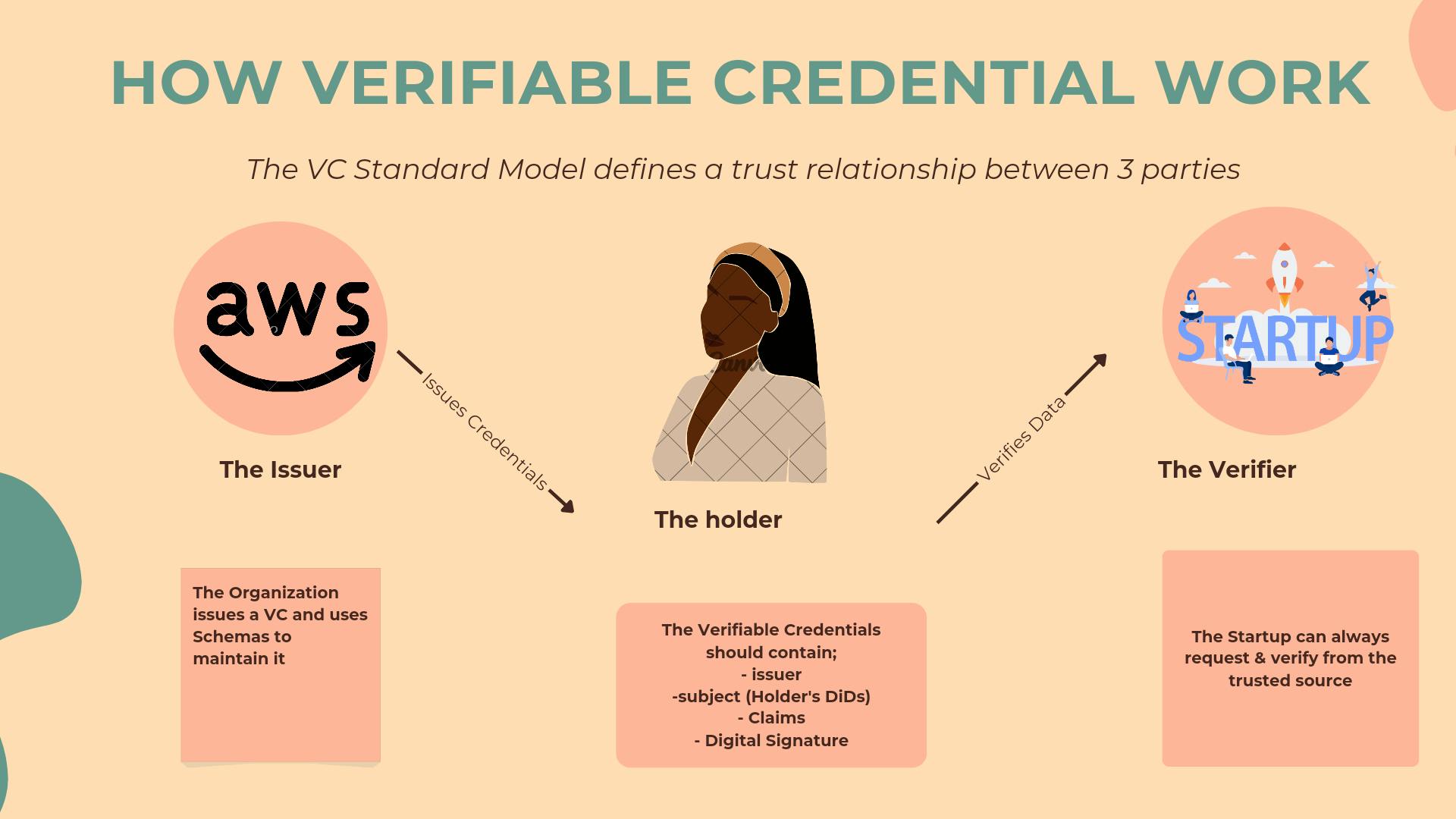
If Omono, a cyber security analyst, wants to get a job with a startup, This startup needs to know that Omono has successfully passed her AWS training
Amazon Web Services (issuer) will issue verifiable credentials containing OMONO’s Digital identifier (DiD), a proof of her exam result, and their digital signature. Omono can store this in a digital wallet for future reference.
Omono can present these cryptographically signed credentials to the startup (verifier), who, based on the cryptographically signed identity of AWS, gives Omono the job.
Zero Knowledge Proofs
Zero Knowledge Proofs (Zk) is a cryptographic technology that allows you to know that information is true without knowing the information itself.
Let's use the story of a job seeker again: what if an organisation (Vainer) wants to hire specifically from Nigeria?
Now Omono, our talented cloud architect, is from Nigeria and she wants to prove this without revealing her nationality in the process.

This is the future of privacy that does not reveal the direct personal information of job seekers.
Another way zero Knowledge Proofs can be used is proving a talent potential is within the age requirement without revealing their age. By running a test where several questions are asked, it is possible to eliminate any chances of luck & prove the accuracy of the information provided.
Use Cases
There are several ways these technologies are being used in real life to combat bias in job hiring. Other platforms are giving more rights to job seekers
Yoma - Creating Digital Anonymous CVs for Marginalized People
Yoma is a platform that uses verifiable credentials to help African youth build up their digital CV in a way
Team tailor - anonymous candidate screening process
Uses an anonymous mode to remove all parts of a candidate's name on the recruiter's dashboard, and replace it with a pseudo name that can easily be converted back after the hiring has been made. This helps recruiters have an unbiased screening process
Zkorum - anonymous identification for authentic feedback
If you create a poll for only women to fill, how do you ensure your poll is filled by only women
Zkorum is a project that is focused on creating a safe space for marginalized individuals so that their social media actions are not linked to their identity. This could be helpful to facilitate free speech and democracy in organizational voting & feedback so employees are not afraid of being fined for their political or social beliefs
Overall, the large-scale use of web5 will surely eliminate the bias faced by marginalized job candidates. It will transfer power to candidates in the job hiring process and give everyone an equal chance.
The implementation of web5 can go even further to be used in loan applications, tracking systems, security breaches and digital voting.
I'm more than excited to see how the application of web5 technology would open the way for more equitable situations where individual privacy is protected
References
1. The Battle of Internet Privacy